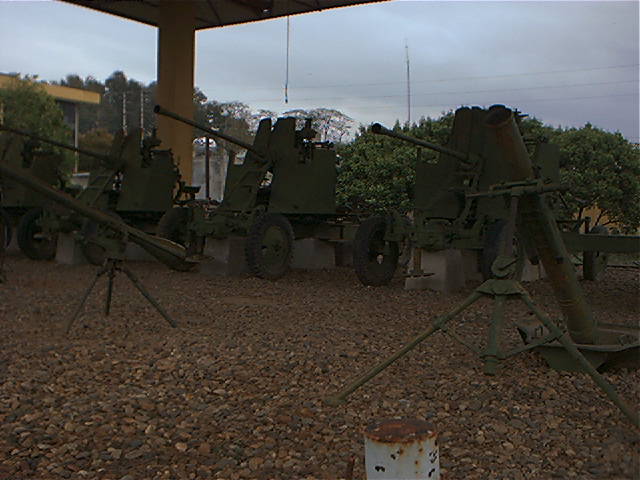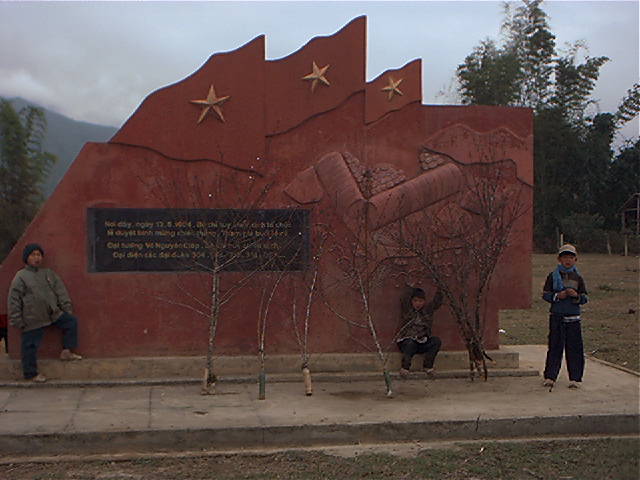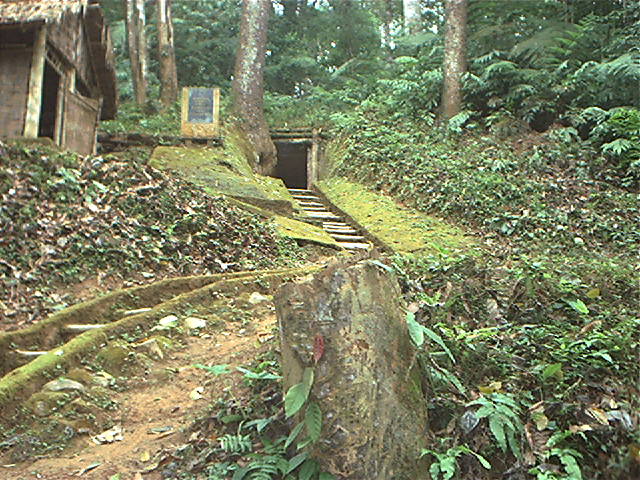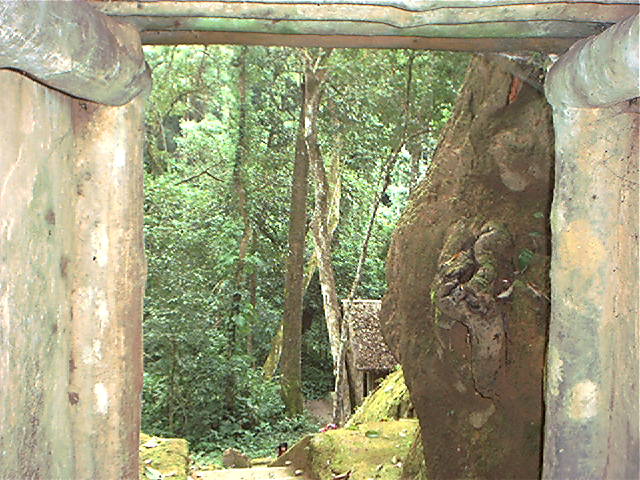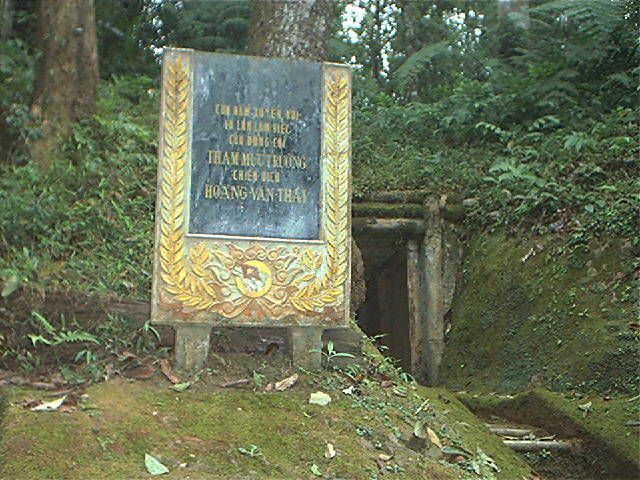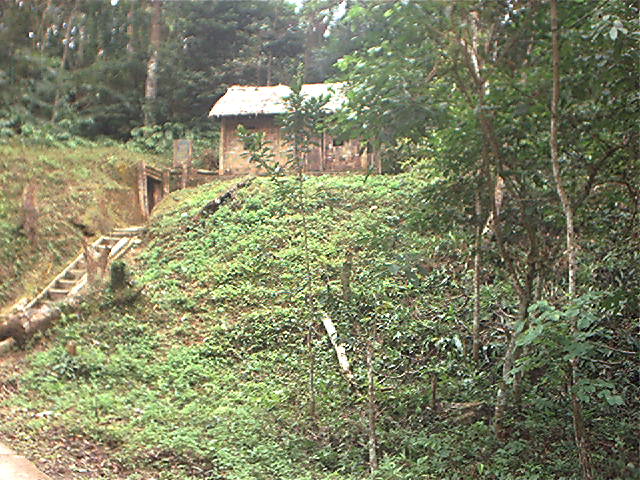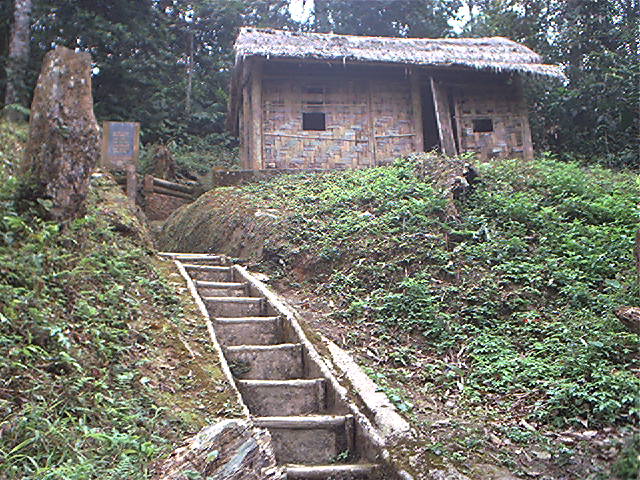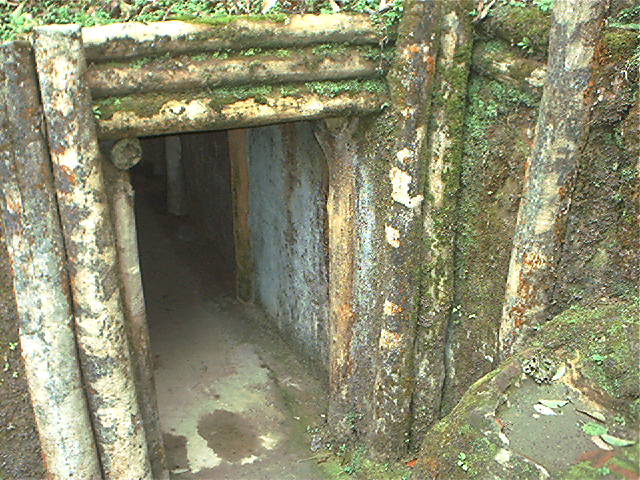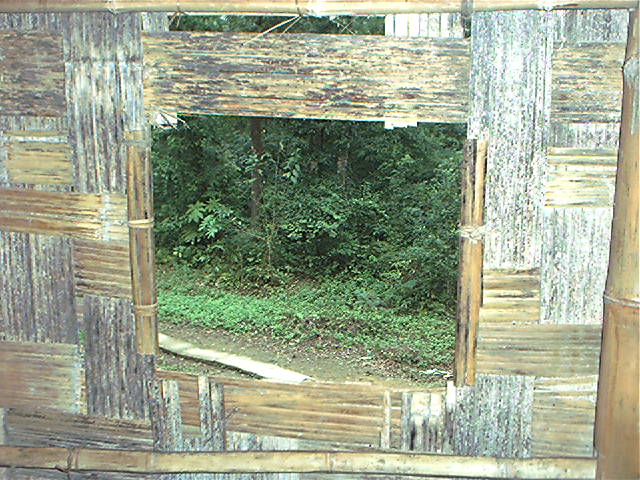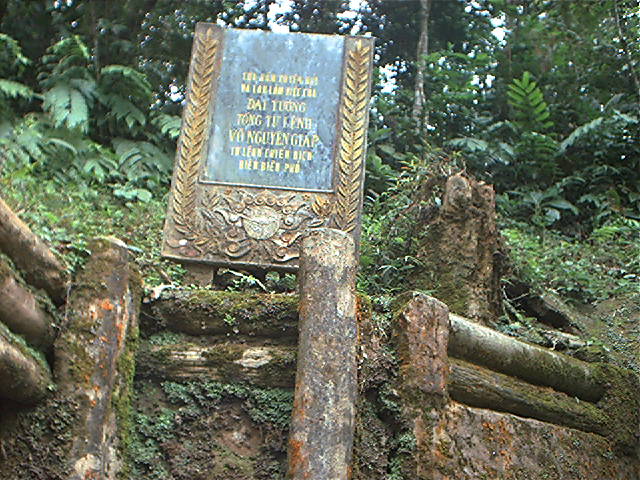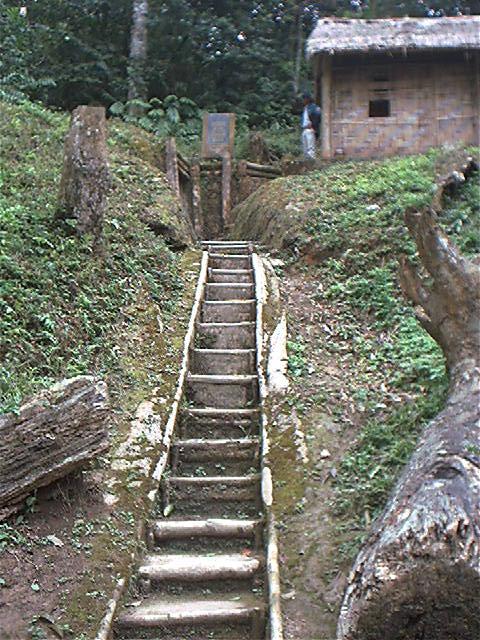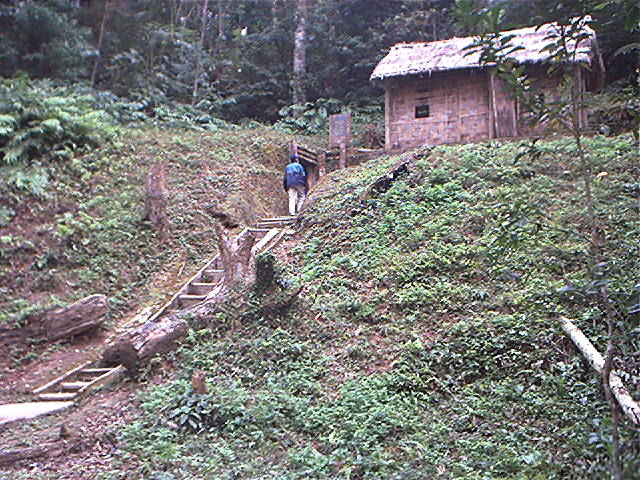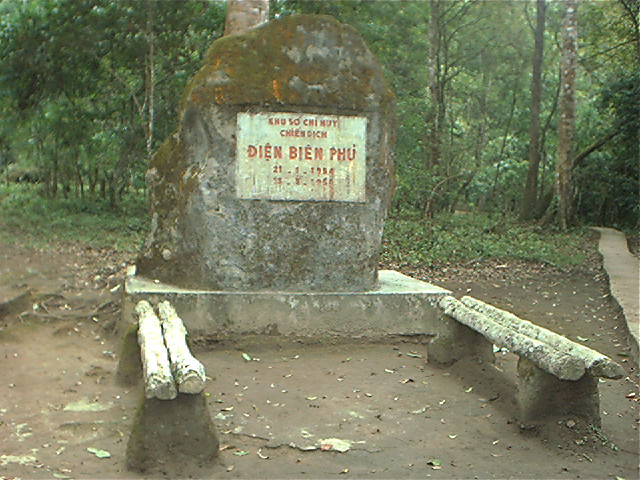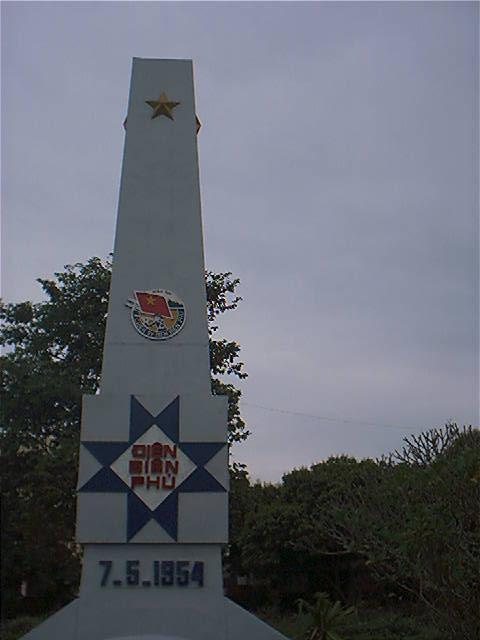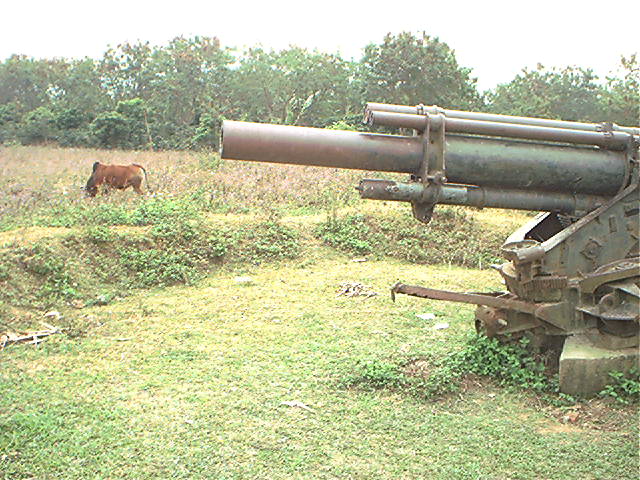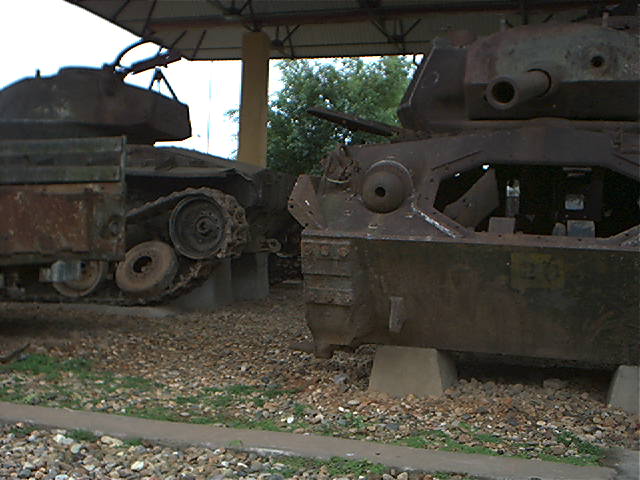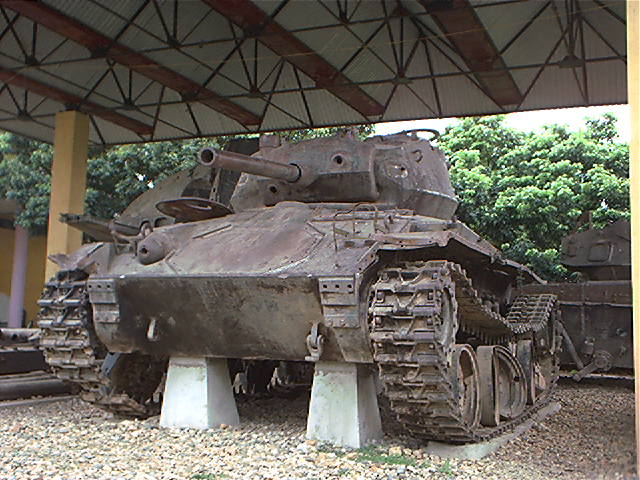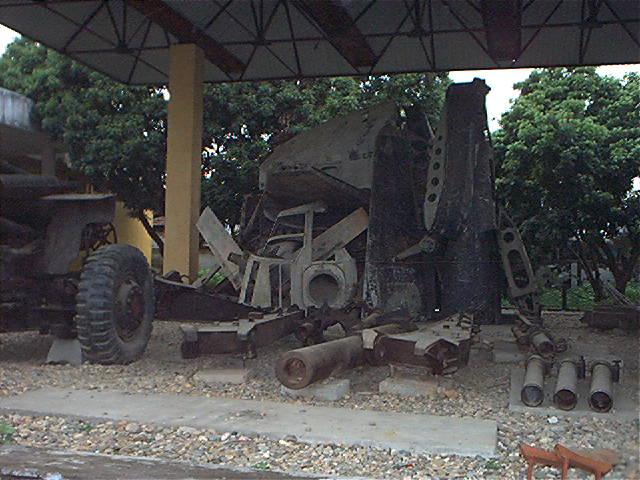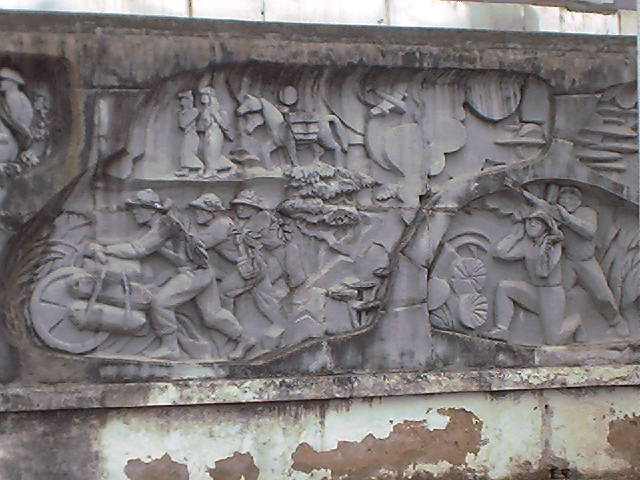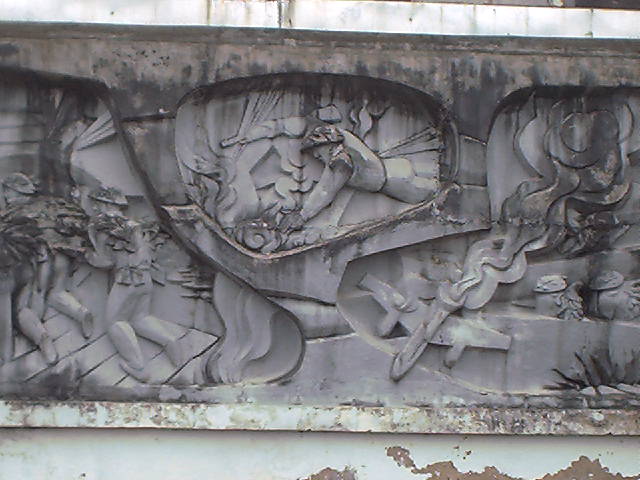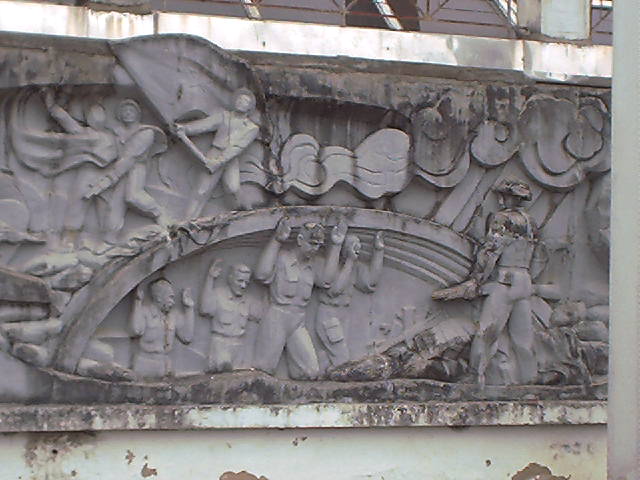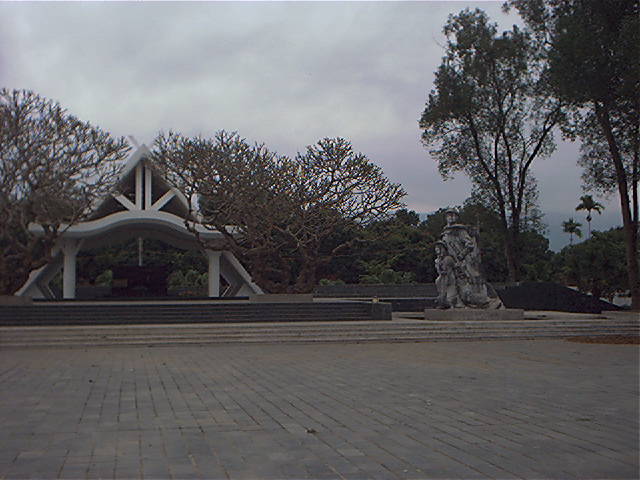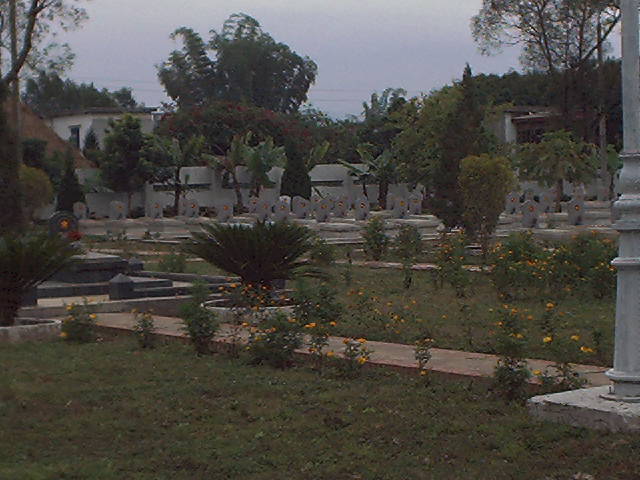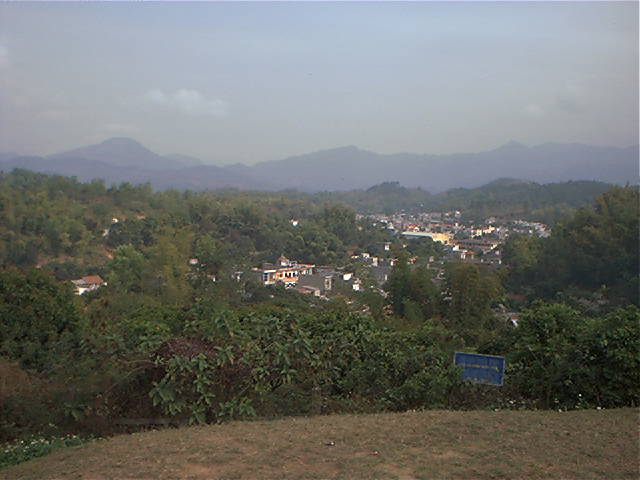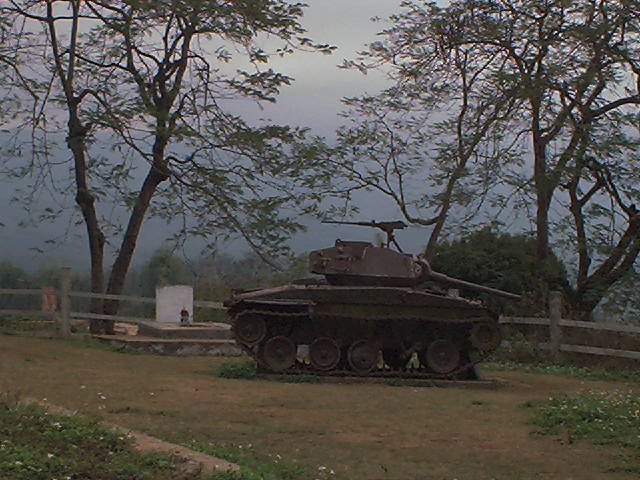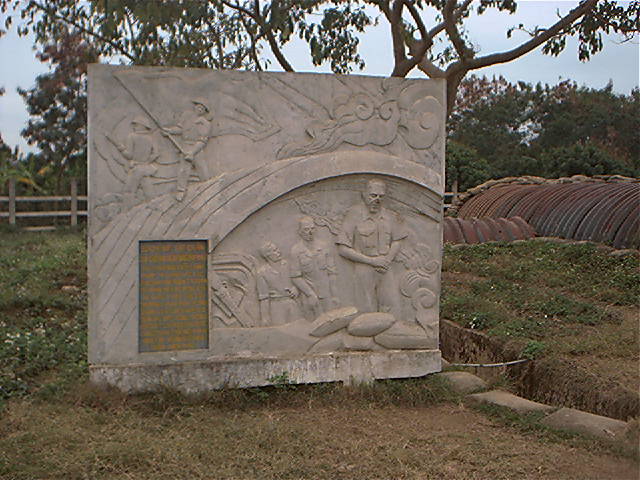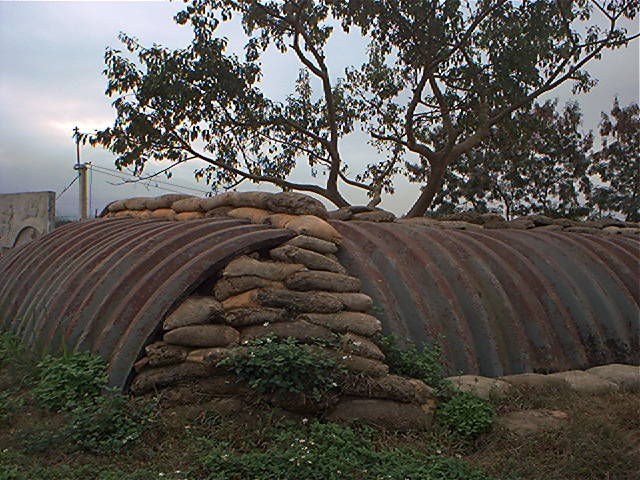More on the ‘Revolutionary Year’
7th May 1954 – Vietnamese Liberation of Dien Bien Phu
At 17.30 on the 7th May 1954 the flag of the Viet Minh, a yellow star on a red background, replaced that of the French imperialists over the command bunker of the Dien Bien Phu military base in the far north-western corner of the country. With that act, and the sacrifice of many thousands of patriots leading up to that event, the Vietnamese Communists had put an end to French colonialism in the part of the world then known as Indochina.
Although the Vietnamese, under the leadership of Ho Chi Minh and the Vietnamese Communist Party had effectively defeated the Japanese invaders during the Second World War the French colonialists were allowed to crawl back with the aid of some of the ‘victorious allies’ in the war against fascism and militarism. Notable here is the involvement of the British (and the Labour Government in power at the time) who, amongst other things, re-armed the defeated Japanese army so they could hold the ground until significant French forces could arrive to re-claim their stolen legacy that had, in turn, been stolen from them by the Japanese.
The Vichy French forces and politicians, who for the majority of the 1939-45 war had been collaborators with Nazism, crawled out of their rat holes and tried to re-establish what remained of their ’empire’. In the same way that German fascists were allowed back into positions of power in Germany the French imperialists were encouraged and supported in the immediate post-war period to take up position against what was seen, especially by the British and the Americans, as the greatest threat of the time – communism and the assumption of state power by the workers and peasants.

Situation of the Fronts in winter 1953 and spring 1954
Whatever their aspirations the French were neither militarily or economically capable of independently maintaining their control of Vietnam and by the early 1950s the US was picking up almost 80% of the tab. By that time the French were effectively loosing, having control of only some of the major towns and cities whilst vast swathes of the countryside were no-go areas. It was during this period that the then US Vice-President, Richard Nixon, was forever visiting the country in an attempt to boost the morale of the failing European imperialists so that they would continued to pursue the interests of the new ‘superpower’.
The French arrived at the end of 1953 with the arrogance and stupidity characteristic of European (and later North American) colonialists and imperialists. They recognised that the very remote region close to the Laos border was important as a conduit for war materials arriving from the Soviet Union and attracting more material as it passed through the young People’s Republic of China. For some reason, that seems to lack any logic, the French commanders thought that by establishing a base, with huge resources in terms of manpower and war material, they would encourage the Vietnamese to take on an enemy it was ill-equipped to defeat.
There’s an adage in military analysis suggesting that ‘generals always fight the last war, especially if they have won it’. For this reason France had built the Maginot Line of fortifications in the 1930s which was considered a work of genius at the time but all the German Fascists needed to do to mitigate the effectiveness of such a ‘defensive line’ was to go around it. This arrogance of the French in 1940 led to the defeat of their armies and the occupation of the country and their capital within six weeks.

Dien Bien Phu Map
The French generals at Dien Bien Phu seemed to have assumed that to defeat the mobile peasant army of the Viet Mihn, an army led by ideology and steeped in guerilla tactics honed in the war against the Japanese and the experience of the Chinese in their war of liberation, could be defeated by establishing a heavily manned and armed enclave in a wide valley in the middle of the jungle.
We have the advantage of hindsight and know what eventually happened but didn’t anyone with influence (including their allies in Washington and London) express any doubts about this tactic at the time? The area is not that accessible by road today, it was much less so in 1953. Virtually everything had to be brought in by air but that created a weak point. Dien Bien Phu is about 500m above sea level, a long way from the sea and fresh sea breezes and is surrounded by higher mountains. Added to that apart from the cultivated areas and towns the area has a tropical climate. This, in the humid environment of a jungle, means episodes of low cloud are very high and in the 1950s that would have meant a possibility of days on end when no flights could take off or land.

VPA High Command working out plan of operations
Not only that the dependence upon air freight limited the amount of heavy artillery that could be brought in to defend the base. There are still a few derelict tanks that litter the site of the battle but they are relatively light and wouldn’t have been able to go too far into the jungle before sinking out of sight. And going into the jungle was what the French colonel, Christian de Castries (a descendent of the aristocratic family that, among other things, gave their name to the town of Castries in Saint Lucia) did, with disastrous consequences.
Putting a European aristocrat in charge of an army in a tropical country with an undeveloped infrastructure against an enemy of ideologically determined peasants was unlikely to lead to success for the European side. To give an indication of the dilettante, out of touch and arrogant approach of de Castries he named the hills and strong points established in the valley bottom after his past mistresses. All his actions showed a complete lack of understanding of guerrilla warfare, what it entailed, how that gave flexibility to his opponents, how by being in a static position he would be constantly reacting to events and how he would have little chance of taking the initiative.
The whole Dien Bien Phu operation took little more than six months from beginning to end and things moved very quickly. Getting intelligence of the build up of Viet Minh forces to the west of his position de Castries was reinforced by something like 800 ‘crack’ paratroops. It wasn’t long before the French realised that going any distance into the jungle just wasn’t a viable tactic given the nature of the terrain. The Americans, who were later to receive their bloody nose from the Vietnamese peasants in the next couple of decades, were only able to get troops into combat because they had access to thousands of Bell Huey helicopters, something the French didn’t have in 1954.
But what really defeated the French invaders was the determination and sheer hard work of the Vietnamese people. The logistical achievements of the Vietnamese in transporting: hundreds of artillery pieces and anti-aircraft guns; the necessary ammunition to make them effective; the munitions for the fighting soldiers; the supplies to feed all the thousands of people involved in the construction of the bunkers for the artillery as well as the fighting soldiers is considered to be one of, if not the most, amazing feat of organisation and determination in the history of warfare.
Within a couple of months of the start of the operation the French realised they had drastically under-estimated the number of troops facing them. By March 1954 they were caught in the trap they thought they had set for the Viet Minh. Destruction of the airstrip and the increasing danger faced by any aircraft attempting to land meant that supplies could only arrive by parachute. That was bad enough but what was probably worse for morale was the fact that none of the injured could be evacuated.
One effect this had on the now beleaguered French was that they fought with even more desperation. They could depend upon no one but themselves. The situation was made worse when one of the last communication from the French High Command, in the safety of their luxury hotels in Hanoi, was basically an order for ‘no surrender’.
Thirty minutes after that conversation the red flag of the Viet Minh flew above de Castries’s command bunker.

Situation of the belligerent forces following the Dien Bien Phu Battle

General view of camp after surrender
In the years that followed it came out that there was even a plan, called Operation Vulture, to drop up 4 tactical nuclear bombs on the Vietnamese. Due to the close quarters in which all this fighting took place it is inconceivable that such weapons would not only have had a dramatic impact upon the guerrilla fighters but also the French soldiers in the valley bottom. The official reason why these bombs were not dropped is said to be the insistence of Eisenhower on support from his western allies, which was not forthcoming.
What’s interesting here, though, is the very fact that there was a proposal to use the most destructive weapon devised up to that time against a peasant army fighting for the independence of their country. There seems to have been no consideration on the impact the dropping of the bombs would have had on the thousands of people who would have died in a most unpleasant manner. The argument to support the dropping of the bombs on Hiroshima and Nagasaki was that it would shorten the war (a fallacious argument but I won’t go into that here) in Dien Bien Phu it would have been dropped just to pull the French colonialists out of the disaster they had created for themselves.
What’s also interesting is that in less than 20 years another General from another country was again proposing to drop (by that time even more powerful nuclear weapons) on the same country, whose population was still fighting for the liberation of their country, and for the same reason – this time it was the Americans who were losing their undeclared war.
Today, 7th May 2014, is the 60th anniversary of the Vietnamese victory but it will be forgotten or ignored in most of the world and will be celebrated in a muted and apolitical manner in Vietnam itself. To celebrate a battle of liberation when the country has been throwing itself at the feet of imperialism for more than 20 years means that what will be officially remembered will be the military victory and not the political. If you celebrate independence people might start to ask where that independence is today.
The Vietnamese Workers Party policy of Doi Moi preceded Perestroika of the Soviet Revisionists but had the same goals – the complete restoration of capitalism – and aims – the plundering of the wealth of the people by a few for the benefit of foreign interests. The sacrifice of those who lost their lives in the north-western mountains and those who died in the brutal undeclared war of the US in the years up to final liberation in 1975 has been squandered. Due to the lack of vigilance of the Vietnamese people those who had inherited a free country were not up to the difficult task of building socialism.
This notwithstanding it has to be remembered, and celebrated, for eternity that the victory over the French 60 years ago was only one of the crushing blows that Vietnamese peasant army and population dealt imperialism. Ten years before they defeated Japanese militarism; 20 years in the future they were to shame the most powerful imperialist state to have existed to date. Three empires humbled in the space of less than 40 years! The tragedy of the acquiescence of their children and grandchildren will never be able to wipe away that honour, which belongs to the Vietnamese people alone. It’s unlikely that any other nation will ever be able to claim such an accolade.
General Vo Nguyen Giap, the military commander of the Viet Minh at that time, and also at the time of the defeat of the Yankee imperialists and their lackeys 21 years later, wrote about his thoughts in the planning of the battle if you are interested in more of the military and political background.
More on the ‘Revolutionary Year’



